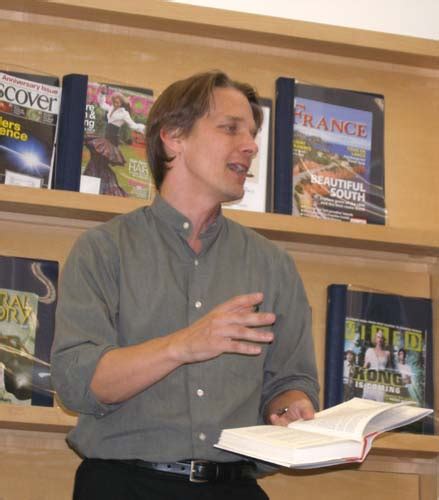A Quote by Terrence Howard
There's a scripture in the Book of James which says, 'Become a doer of the word and not a hearer only.' A hearer is someone who looks into a mirror, walks away, and quickly forgets what sort of person he is.
Related Quotes
A word is used "correctly" when the average hearer will be affected by it in the way intended. This is a psychological, not a literary, definition of "correctness". The literary definition would substitute, for the average hearer, a person of high education living a long time ago; the purpose of this definition is to make it difficult to speak or write correctly.
If I am to be a thoroughfare, I prefer that it be of the mountain brooks, the Parnassian streams, and not the town sewers. There is inspiration, that gossip which comes to the ear of the attentive mind from the courts of heaven. There is the profane and stale revelation of the barroom and the police court. The same ear is fitted to receive both communications. Only the character of the hearer determines to which it shall be open, and to which closed.
The art of reasoning becomes of first importance. In this line antiquity has left us the finest models for imitation; I should consider the speeches of Livy, Sallust, and Tacitus, as pre-eminent specimens of logic, taste, and that sententious brevity which, using not a word to spare, leaves not a moment for inattention to the hearer. Amplification is the vice of modern oratory.
[T]he scripture worshippers put the writings ahead of God. Instead of interpreting God's actions in nature, for example, they interpret nature in the light of the Scripture. Nature says the rock is billions of years old, but the book says different, so even though men wrote the book, and God made the rock and God gave us minds that have found ways to tell how old it is, we still choose to believe the Scripture.




































